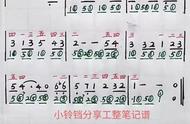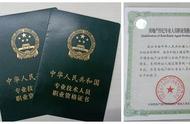一、1. 构成:将来进行时由“will/ shall be 现在分词”构成。如:
I’ll be doing jobs about the house tomorrow 明天我将要干些家务活。
I’ll be staying late at the office this evening. 我将在办公室里待到比较晚。
2. 句型转换
肯定句: He will be walking his dog tomorrow morning.
否定句: He won’t be walking his dog tomorrow morning.
一般疑问句: Will he be walking his dog tomorrow morning?
简答: Yes, he will. / No, he won’t.
特殊疑问句: What will he be doing tomorrow morning?
二、将来进行时的主要用法

1. 将来进行时表示将来某一时间正在进行的动作
Hurry up! The guests will be arriving at any minute! 快! 客人就要来了!
A space vehicle will be circling Jupiter in five years’ time. 航天器5年后将绕木星飞行。
Don’t phone me between 5 and 6. We’ll be having dinner then. 五点至六点之间不要给我打电话,那时我们在吃饭。
When I get home, my wife will probably be watching television. 当我到家时,我太太可能正在看电视。
2. 将来进行时表示表示按时划或安排要发生的动作
I will be seeing you next week. 我下个星期来看你。
I’ll be taking my holidays soon. 不久我将度假了。
We shall be going to London next week. 下周我们要去伦敦。
We’ll be spending the winter in Australia. (=we are spending) 我们将在澳大利亚过冬。
3. 将来进行时表示委婉语气
Will you be having some tea? 喝点茶吧。
Will you be needing anything else? 你还需要什么吗?
三、将来进行时与一般将来时的区别
1. 两者基本用法不一样
将来进行时表示将来某时正在进行的动作,一般将来时表示将来某时将要发生的动作:
What will you be doing this time tomorrow? 明天这个时候你会在做什么呢?
What will you do tomorrow? 你明天干什么?
2.两者均可表示将来,但用将来进行时语气更委婉,比较:
When will you pay back the money? 你什么时候还钱?(似乎在直接讨债)
When will you be paying back the money? 这钱你什么时候还呢?(委婉地商量)
3. 有时一般将来中的will含有“愿意”的意思,而用将来进行时则只是单纯地谈未来情况:
Mary won’t pay this bill. 玛丽不肯付这笔钱。(表意愿)
Mary won’t be paying this bill. 不会由玛丽来付钱。(单纯谈未来情况)
四、将来进行时与现在进行时的搭配使用
1.将来进行时通常和某一时刻连用,表示一个动作在该时刻之前开始并且很可能在该时刻之后仍然继续。
设想一个班的学生上午9点半在做什么,然后可以这样表达:
Now they are sitting in their classroom. They are listening to a tape. This time tomorrow they will be sitting in the cinema. They will be watching a film. On Saturday there is no class. So on Saturday they will not be sitting in the classroom. They will be doing other things. Bill will be playing tennis. Ann will be shopping. George will still be having breakfast.
现在他们正坐在教室里。他们在听录音。明天这个时候他们会坐在电影院里看电影。星期六没有课。因此,星期六这时候他们不在教室里。他们会做别的事情。比尔会在打网球,安会去买东西,乔治会还在吃早饭。
2.进行时态也可以和一般现在时连用。如:
Peter has been invited to dinner with Ann and Tom. He was asked to come at eight but tells another friend that he intends to arrive at seven. The friend tries to dissuade him, ‘When you arrive they’ll still be cooking the meal!’
彼得应邀与安和汤姆一起吃饭。他们要彼得8点到,但彼得却告诉另一位朋友说他自己想在7点到。那位朋友劝阻他说:“你到的时候,他们还在做饭呢!”
五、将来进行时与现在进行时的区别
1.现在进行时表示一种经过考虑的、将来要进行的动作,而将来进行时通常表示正常过程中会发生的动作,因此将来进行时不如现在进行时那样肯定,比后者偶然性要大一些:
I am seeing Tom tomorrow. 明天我要和汤姆见面。
I’ll be seeing Tom tomorrow. 明天我会见到汤姆。
解析:第一句意指汤姆或说话人已经特意安排了这次会面,而第二句则意指汤姆和说话人将在通常进程中见面(也许他们在一起工作)。
不过这种差别并不是在任何情况下都很重要,而且常常两者都可以使用。
可以这样说:He will be taking his exam next week. 他下周要参加考试。
也可以这样说:He is taking his exam next week. 他下周要参加考试。
2.现在进行时用于表示最近将来的动作时,必须有确定的时间,而将来进行时可以和确定的时间状语连用,也可以不连用。
它既可以表示最近将来的动作,也可以表示较远将来的动作。
I am meeting him tomorrow. 我明天和他会面。
I’ll be meeting him tomorrow / next year / some time /. 我明天 / 明年 / 某时将与他会面。
六、将来进行时与“will 动词原形”的比较
1. 相似性比较:“will 动词原形”表示将来的意图,将来进行时表示未经过考虑将来便要进行的动作。
I’ll write to Mr. Pitt and tell him about Tom’s new house. 我要写信告诉皮特先生关于汤姆的新房子的事。
I’ll be writing to Mr. Pitt and I’ll tell him about Tom’s new house. 我会写信给皮特先生并告诉他关于汤姆的新房子的事。
2. 差异性比较:“will 动词原形”可以表示邀请,或表示有礼貌的请求,或者发出命令。而将来进行时则无上述这些含义。
Will you have a cigarette? 请抽烟。
Will you help me to lift the piano? 请你帮我抬一下钢琴,好吗?
You will work in this room. 你在这个房间里工作。
一Will you please bring the piano in here? 请你把钢琴搬进这里来,好吗? 一Yes. sir. / OK. 一好,先生。 / 好的。
七、过去进行时,现在进行时和将来进行时的比较
过去进行时 I was doing my homework at 8 p.m. yesterday.
现在进行时 I am doing homework now.
将来进行时 I will be doing my homework at 8 a.m. tomorrow.












